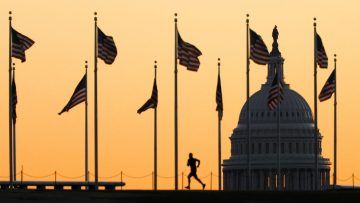Oliver Traldi in The National Review:
 For the past several years, there has been a flood of commentary about how politics is poisoning social life, from first-person stories about “surviving” holidays or breaking off romantic relationships to surveys about the precipitous drop in inter-partisan friendships on college campuses. There are many who think this is a reasonable state of affairs: that “the personal is political” and that it is therefore only natural that all of a person’s social perceptions and choices be suffused with the eerie light of political analysis. But there are also those who dissent. These dissenters say that Americans need to relearn how to disagree with one another productively; the strength of our public dialogue and of our democratic process itself may depend, this crowd says, on our having more and better political discussion and more interactions with those outside our bubbles.
For the past several years, there has been a flood of commentary about how politics is poisoning social life, from first-person stories about “surviving” holidays or breaking off romantic relationships to surveys about the precipitous drop in inter-partisan friendships on college campuses. There are many who think this is a reasonable state of affairs: that “the personal is political” and that it is therefore only natural that all of a person’s social perceptions and choices be suffused with the eerie light of political analysis. But there are also those who dissent. These dissenters say that Americans need to relearn how to disagree with one another productively; the strength of our public dialogue and of our democratic process itself may depend, this crowd says, on our having more and better political discussion and more interactions with those outside our bubbles.
In his new book, Robert Talisse, a philosophy professor at Vanderbilt University, agrees with the dissenters that our politically polarized and politically saturated culture is not in good shape. But he disagrees about the solution. “Calls for bipartisanship and cooperation are insufficient,” Talisse writes, “and in a way misguided. More and better politics cannot be the solution . . . because politics is the problem.” Americans are “overdoing democracy in that politics has become practically inescapable,” and hence “we have to put politics in its place.”
More here.
